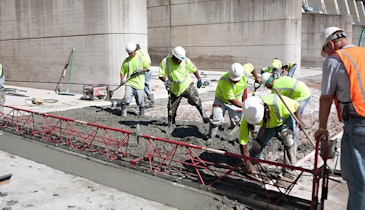I recently heard an AM radio talk show host ranting about how one political party wants to raise taxes and how terrible it would be, amid fears of a recession, to “take all that money out of the economy.”
Indeed, in some circles, it seems an accepted, immutable fact that taxes “take money out of the economy.” But do they? Taxes take money out of people’s pockets — yes. More taxes mean families have fewer choices about what to do with the money they earn — true enough.
But do taxes “take money out of the economy”? They most certainly do not. Before we examine that idea, a disclaimer: No one with any sense advocates wasteful government spending or the raising of taxes on a whim. The ability to tax is an awesome power that every government agency must treat with the utmost respect and restraint.
That said, in a time when our public sewer and water infrastructure badly needs major investments, it is essential to debunk the idea that taxes drain the economy.
Check the numbers
No less than the Associated General Contractors of America recently did some serious debunking. A February press release from AGC said the administration had put forward a $3.1 trillion proposed budget for fiscal year 2009 that would shrink domestic spending and reduce infrastructure investment by 2.9 percent below the 2008 level.
“At a time when we’re looking for ways to stimulate the economy, cutting infrastructure spending is short-sighted,” said Stephen E. Sandherr, AGC chief executive officer. “This budget does not help to promote job growth and protection in a declining economy. Over the last year there has been a 2.1 percent decline in nonresidential construction employment, which translates into 21,000 lost jobs.”
What’s this? The largest and oldest national construction trade association, representing 33,000 (presumably overtaxed) private businesses, believes that public spending — supported by taxes — stimulates rather than drains the economy? Surely this is some kind of misprint.
(Or maybe AGC believes, as many in the anti-tax camp seem to, that we should simply spend this money on the infrastructure, but not tax people to cover it.)
Follow the money
What is it with this heretical claim that public spending is good for the economy? Isn’t this against everything Grover Norquist, Rush Limbaugh, Sean Hannity and other high priests have taught us?
Yes it is, but a closer look tells us the AGC is right. Where do tax dollars spent on infrastructure go? To essentially the same place that tax dollars spent on teachers and city and utility employees go: into the checking accounts of hardworking people. And with a great deal of efficiency, too.
People who work for municipal agencies, and the contractors who serve them, generally have good-paying, family-supporting jobs with full benefits. Collectively, they have considerable economic muscle.
It also turns out that public agencies and businesses working on infrastructure spend money on materials and equipment overwhelmingly produced right here at home — again by people who generally have good-paying jobs and have money to buy all manner of goods and services. So that money stays within local economies for a long time.
Yet the focus of the federal government’s economic stimulus package (essentially $150 billion or so of borrowed money) is to give rebate checks that people can spend on flat-panel TVs, discount store appliances, and other goods made mostly overseas.
I know, I know
Now, I am not saying it’s bad for people to have choices on where to spend the money they earn (or get back from the government). And I’m not saying every tax for a public infrastructure investment is good (think Bridge to Nowhere and other pork).
But we need to let go of this idea that public investment and taxes “take money out of the economy.” In fact, at a time when our vital infrastructure needs many billions of dollars in investment, and the economy needs a jump-start, it only makes sense to think of infrastructure work as part of an economic stimulus program.
We also need to let go of the well-entrenched idea that we should hate paying taxes. Arguably, that attitude is what got us into this anti-tax era in the first place.
We need to remember that we live in a representative democracy and that every tax we pay was voted for in public by people we elected to office (or did if we bothered to vote). Those taxes, to the extent that government is efficient (and at the state and local level where most infrastructure is built, it is quite efficient) go to pay for necessities.
Therefore, we should resent paying for sewers, water systems, streets, highways and bridges no more than we resent paying for mortgages, gasoline, clothing, and groceries. We can of course resent public officials who spend our money unwisely, or better still, vote for other candidates the next time.
But where infrastructure is concerned, let’s recognize not only that we need it for quality of life but that spending on it employs people — our fellow community residents, friends, neighbors, and even family members.
Taxes do not “take money out of the economy.” Like department stores, factories, car dealerships and doctor offices, public agencies and the taxes that support them are a part of the economy, and a productive part at that.





